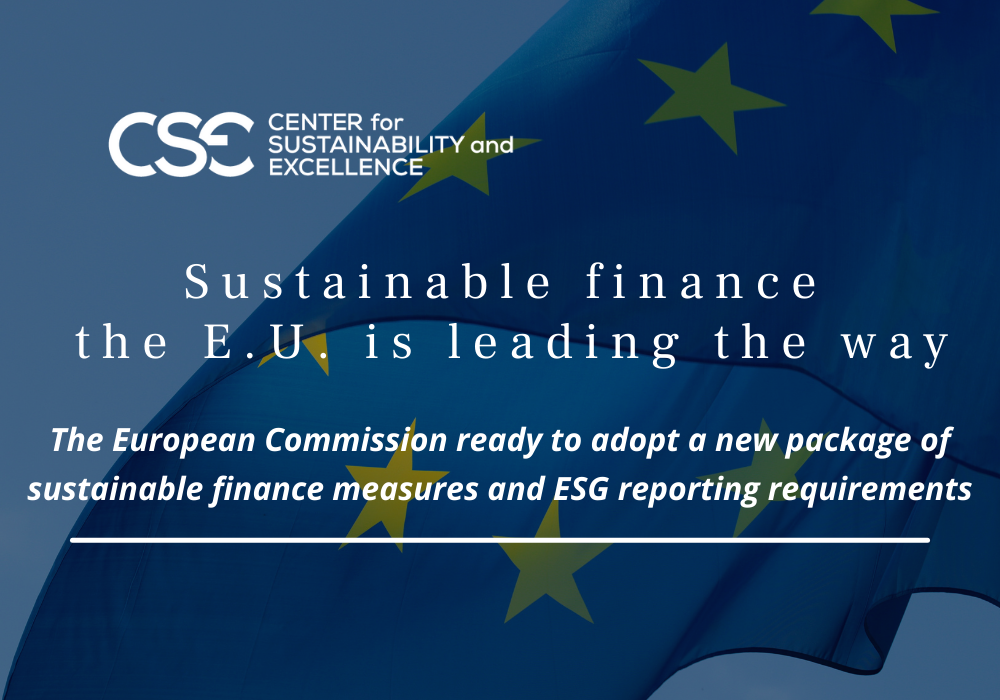Sustainability data are becoming essential for effective corporate management and opportunities in the fast-changing world. In 2018, the EU introduced the Non-Financial Reporting Directive (NFRD), requiring large entities to include a non-financial statement as part of their annual reporting obligations. Now, the European Commission is ready to adopt a new package of sustainable finance measures and ESG reporting requirements, making the EU a global leader in sustainable investments.
International approach and large companies
The reporting rules by the Non-Financial Reporting Directive has been applied for listed companies, banks, insurance companies and large companies with more than 500 employees so far. The new proposal will extend the scope of these requirements to include all large companies, regardless of being listed or not and without the previous 500-employee threshold. This means that the 11.000 companies, covered by the current directive, will now reach 50,000.
Approach towards SMEs
Furthermore, the reviewed NFRD has proposed a separate set of standards for SMEs. Listed SMEs could use this pack of standards to meet their legal reporting obligations, while non-listed SMEs could choose to use them on a voluntary basis, helping them play a full role in the transition to a sustainable economy. It is important that all requirements will apply three years after the large companies, in order to allow for better adaptation due to the economic difficulties caused by COVID-19.
Alignment with EU initiatives and mandatory assurance
The new package would also ensure alignment with other EU initiatives on sustainable finance, such as EU Taxonomy and specifically, the Sustainable Finance Disclosure Regulation (SFDR). The aim is to avoid complexity and duplicative reporting requirements. Moreover, it is the first time that the Commission introduces a general EU-wide audit (assurance) requirement for reported sustainability information, ensuring accuracy and reliability of data for investors and other stakeholders.
Supporting digitalization
EU focuses on lower reporting costs for companies and improvements in how investors and other stakeholders can compare and use the reported information. To achieve this, the Commission anticipates an increase in digitalization of sustainability information.
Is your company ready to rise to the challenge set by the new ambitions of the European Commission?
These key topics, trends and new challenges, caused by the new legislative requirements, are covered in CSE’s upcoming three-day Certified Sustainability (ESG) Practitioner Program, Advanced Version, on June 24-25 & 28, specially designed for C-level Executives. The program provides a unique recognition in the Sustainability and ESG field.
To find out more about how you can join this high-in-demand Certified Sustainability Program, please reach us at [email protected]







